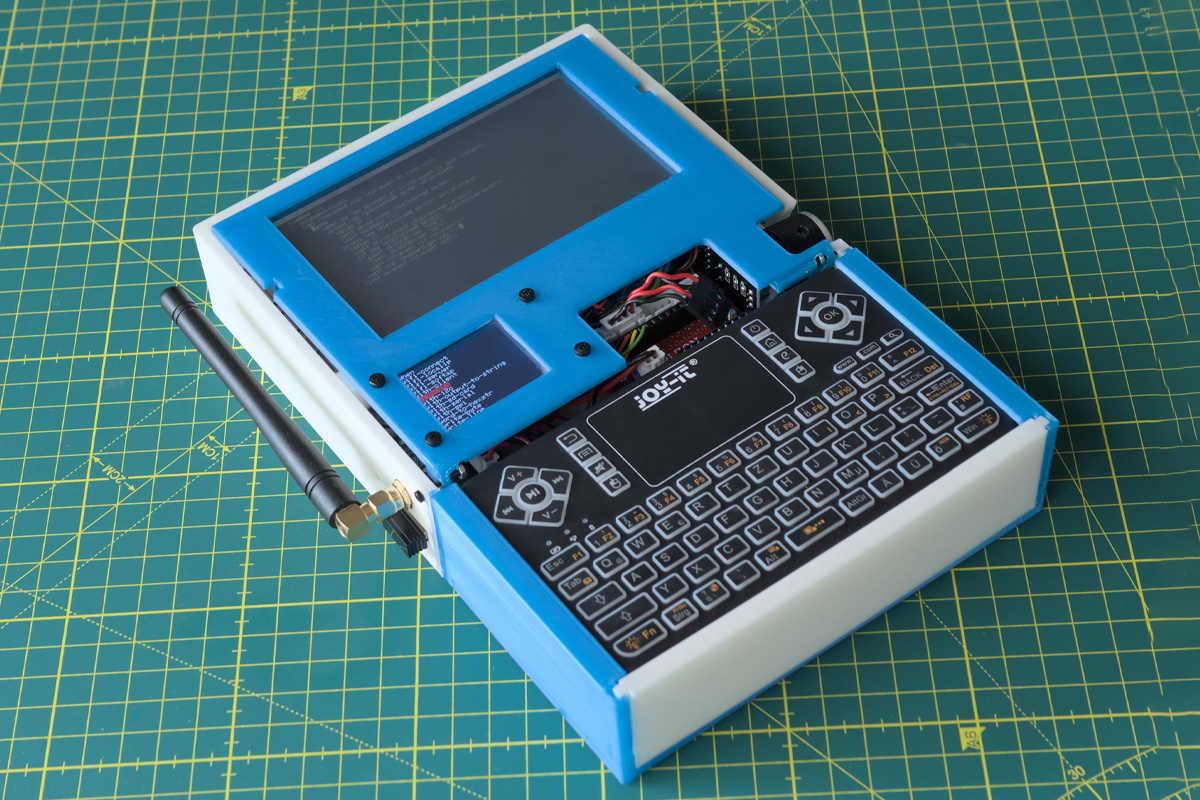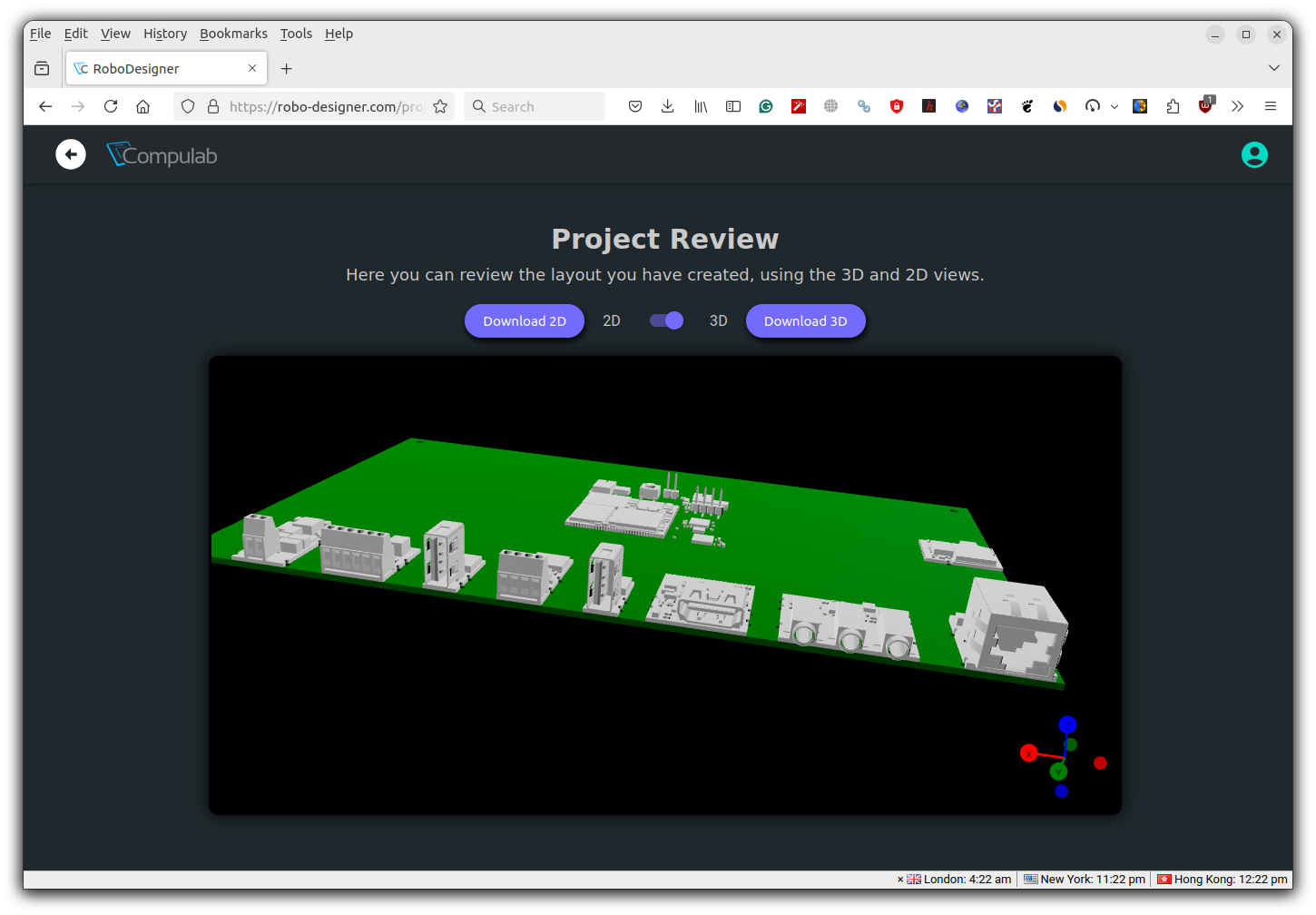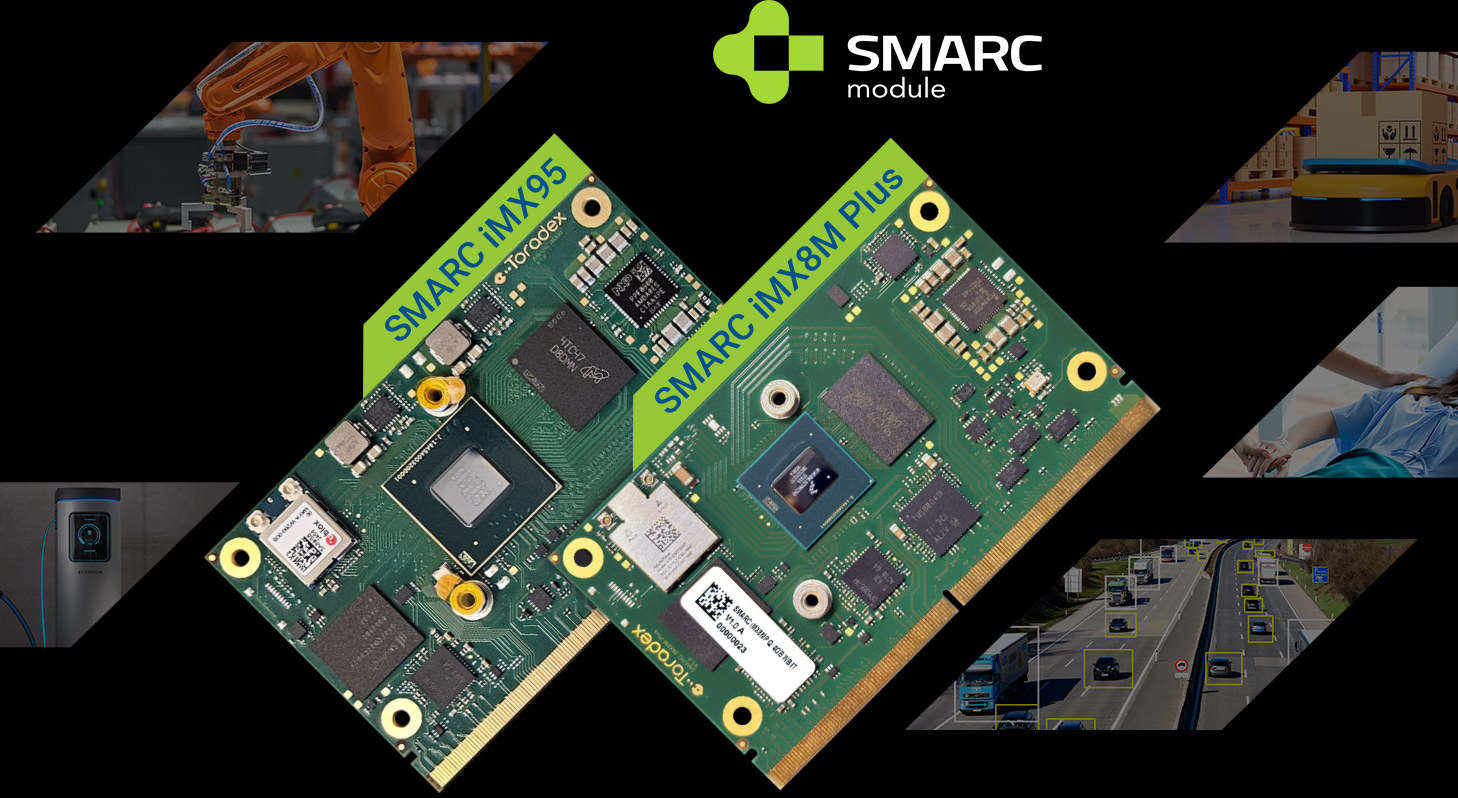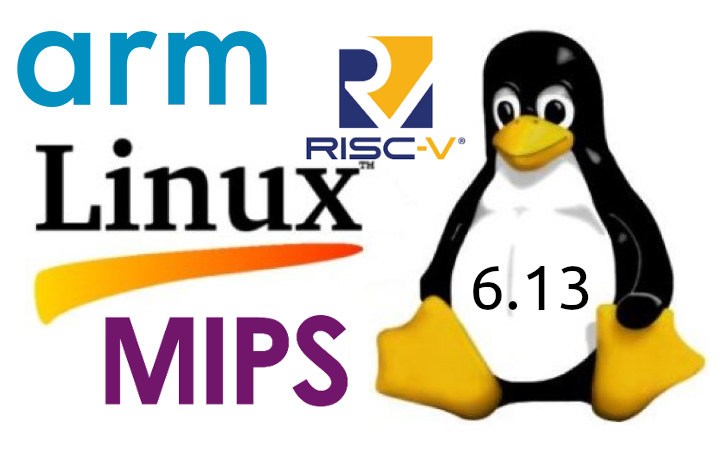Variscite VAR-SOM-AM62P is a system-on-module powered by Texas Instruments Sitara AM62P5 quad-core Cortex-A53 + Cortex-R5F SoC coupled with up to 8GB LPDDR4 RAM and 128GB eMMC flash, and designed for cost-effective multimedia applications. The SO-DIMM module offers high speed interfaces such as gigabit Ethernet and USB 2.0, a certified WiFi 6 and Bluetooth 5.4 module, and operating in the -40 to 85°C industrial range. As a VAR-SOM module, it’s pin-to-pin compatible with other modules from the family such as the VAR-SOM-6UL or VAR-SOM-IMX93. Variscite VAR-SOM-AM62P specifications: SoC – Texas Instruments Sitara AM62P5 CPU 4x Arm Cortex-A53 @ 1.4 GHz up to 12,880 DMIPS Arm Cortex-R5F real-time core up to @ 800 MHz GPU – 3D GPU with OpenGL ES 3.2 & Vulkan1.2 VPU – H.264/H.265 Video Encoder/Decoder No PRU System Memory – 1GB to 8GB LPDDR4 Storage – 8GB to 128GB eMMC flash Networking Gigabit Ethernet PHY (Analog Devices ADIN1300) […]
LispDeck handheld lisp computer Runs uLisp on Teensy 4.1 with Wi-Fi, LoRa, and two screens
Designed by Hartmut Graw, the LispDeck is a Handheld Lisp computer built around the Teensy 4.1 microcontroller for Lisp programming on the go. It features a dual-screen setup with a 5-inch touchscreen and, a secondary ST77350-based TFT display. It also has an Adafruit RFM96 radio module, an ESP8266 Wi-Fi module, a rotary encoder, an SD card for storage, and a detachable wireless USB keyboard, all housed in a 3D-printed case. Running the uLisp language, it features a standalone Lisp programming environment without needing a PC or tablet. It is an evolution of the LispBox, with a portable and battery-powered design, which also maintains compatibility. Unlike Raspberry Pi-based cyberdecks, the LispDeck is designed for complete control over the system without the complexity of Linux. It is useful for Lisp enthusiasts who want a compact, dedicated computing device that’s fully documented. LispDeck Specifications SoC – NXP i.MX RT1062 via Teensy 4.1 board […]
Edge video processing platform features NXP i.MX 8M Plus, i.MX 93, or i.MX 95 SoC, supports up to 23 camera types
DAB Embedded AquaEdge is a compact computer based on NXP i.MX 8M Plus, i.MX 93, or i.MX 95 SoC working as an edge video processing platform and supporting 23 types of vision cameras with resolution from VGA up to 12MP, and global/rolling shutter. The small edge computer features a gigabit Ethernet RJ45 jack with PoE to power the device. It is also equipped with a single GSML2 connector to connect a camera whose input can be processed by the built-in AI accelerator found in the selected NXP i.MX processors. Other external ports include a microSD card slot, a USB 3.0 Type-A port, and a mini HDMI port (for the NXP i.MX 8M Plus model only). DAB Embedded AquaEdge specifications: SoC / Memory / Storage options NXP i.MX 8M Plus CPU – Quad-core Cortex-A53 processor @ 1.8GH, Arm Cortex-M7 real-time core AI accelerator – 2.3 TOPS NPU VPU Encoder up to […]
Compulab RoboDesigner – Design and order a custom SBC within one hour from your web browser
Compulab RoboDesigner is a new web-based tool and service that allows you to design and or a custom SBC using one of Compulab’s system-on-module within about one hour instead of going through the more lengthy process of designing a carrier board by yourself. I’ve given it a try, and it’s really easy to use even if you don’t have any engineering skills. It’s very similar to Gumstix Geppetoo introduced in 2013 for Overo SoMs, and now called Upverter with support for a wider range of modules including Raspberry Pi Compute Modules. The first step is to go to https://robo-designer.com/ and click on Select Functions. Right now, the selection of SoMs is rather limited because there’s only one: CMiMX8M C-Lab CORE with an NXP i.MX 8M Mini processor, 2GB of RAM, and a 16GB eMMC flash. You can then select the I/O modules you want from the list with the remaining […]
Toradex launches its first SMARC modules with NXP SoCs for improved compatibility and supply chain
Toradex has introduced its first SMARC-compliant system-on-modules (SoMs) with the SMARC iMX8M Plus and SMARC iMX95 SoMs based on NXP i.MX 8M Plus and NXP i.MX 95 SoC respectively. The company has made proprietary system-on-modules for years with the Colibri, Apalis, Aquila, and Verdin families. Those typically are cost-optimized and use most or all I/Os from the selected SoC, but customers are tied to one supplier: Toradex. To offer more flexibility, the company decided to introduce its first standardized system-on-modules by selecting the SMARC 2.2 standard for compatibility with existing SMARC-compliant carrier boards and adding the Swiss company as an alternative supplier. Highlights of the SMARC iMX8M Plus module: SoC – NXP i.MX 8M Plus CPU Quad-core ARM Cortex-A53 application processor @ 1.6 GHz Arm Cortex-M7 real-time core @ 800 MHz GPU – Vivante GC380 2D GPU and GC7000UL 3D GPU VPU – 1080p60 video decoder & encoder AI accelerator […]
Linux 6.13 Release – Main changes, Arm, RISC-V, and MIPS architectures
Linus Torvalds has just announced the release of Linux 6.13 on the Linux Kernel Mailing List: So nothing horrible or unexpected happened last week, so I’ve tagged and pushed out the final 6.13 release. It’s mostly some final driver fixes (gpu and networking dominating – normal), with some doc updates too. And various little stuff all over. The shortlog is appended for people who want to see the details (and, as always, it’s just the shortlog for the last week, the full 6.13 log is obviously much too big). With this, the merge window for 6.14 will obviously open tomorrow. I already have two dozen pull requests pending – thank you, you know who you are. Linus Release about two months ago, Linux 6.12 – the new LTS version – brought us real-time “PREEMPT_RT” support that had always required out-of-tree patchsets until now, the completion of the EEVDF (Earliest Eligible […]
FOSDEM 2025 schedule – Embedded, Open Hardware, RISC-V, Edge AI, and more
FOSDEM 2025 will take place on February 1-2 with over 8000 developers meeting in Brussels to discuss open-source software & hardware projects. The free-to-attend (and participate) “Free and Open Source Software Developers’ European Meeting” grows every year, and in 2025 there will be 968 speakers, 930 events, and 74 tracks. Like every year since FOSDEM 2015 which had (only) 551 events, I’ll create a virtual schedule with sessions most relevant to the topics covered on CNX Software from the “Embedded, Mobile and Automotive” and “Open Hardware and CAD/CAM” devrooms, but also other devrooms including “RISC-V”, “FOSS Mobile Devices”, “Low-level AI Engineering and Hacking”, among others. FOSDEM 2025 Day 1 – Saturday 1 10:30 – 11:10 – RISC-V Hardware – Where are we? by Emil Renner Berthing I’ll talk about the current landscape of available RISC-V hardware powerful enough to run Linux and hopefully give a better overview of what to […]
CNX Software’s 2024 Year in review, website statistics, and what to expect in 2025
That’s it! 2024 is almost over, and it’s time to reflect on what happened during the year. So I’ll look at the highlights of 2024, share some CNX Software website traffic statistics, and speculate on what may be ahead of us in 2025. Looking back at 2024 Raspberry Pi was super active this year with 22 product launches that included boards and modules like the Raspberry Pi 5 with 2GB RAM, Raspberry Pi Pico 2 and Pico 2 W, Raspberry Pi CM5, expansion modules like the Raspberry Pi AI camera, AI HAT+, and M.2 HAT+, new accessories such as the Raspberry Pi Touch Display 2 and the Raspberry Pi Monitor, and the new Raspberry Pi 500 keyboard PC among others. As usual, there was also plenty of announcement of accessories from third parties, and some boards with the new Raspberry Pi RP2350 Arm/RISC-V microcontroller. There weren’t any ground-breaking Arm processors […]










